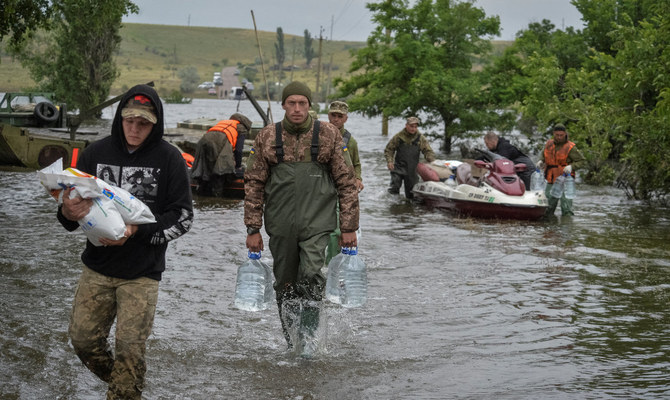
A recent UN Secretary General’s report on conflict-related sexual violence makes chilling reading. It is almost impossible to decide what is worse: Is it that in the 21st century men are behaving savagely, subjecting women and girls, as well as men and boys, in conflict zones to brutal sexual violence? Or is it that, in many cases, this is a calculated act, part of their war strategy? Whatever the answers to these questions, it is imperative to find effective policies to eradicate this phenomenon from the face of the earth. And, when it occurs, those who perpetrate these heinous crimes, as well as those who either sent them with the intention of carrying out this brutality or turned a blind eye when it happened, should be brought to justice.
On the UN’s list of 13 countries in which this despicable phenomenon is taking place are places such as Afghanistan, Colombia, Iraq, Syria, Libya and Mali. Moreover, in post-conflict states such as Cote d’Ivoire, Sri Lanka or Bosnia, where acts of extreme sexual violence occurred on a mass scale, the survivors are not supported adequately by the government; it is they who carry a stigma rather than their attackers, and in some cases the sexual violence continues, even if more sporadic.
More recently, when it comes to violations of human rights in general and sexual violence in particular, public attention has been focused on the criminal behavior of Myanmar’s military toward the Rohingya minority in that country. According to Antonio Guterres’s report, many of the almost 700,000 Rohingya Muslims who fled Myanmar for Bangladesh last year had been subjected to acts of sexual violence by the country’s armed forces. It is now thoroughly documented by international medical staff and service providers operating in Bangladesh that “many (Rohingya) civilians bear the physical and psychological scars of brutal sexual assault.” Evidence points to the Myanmar armed forces (Tatmadaw) as the perpetrators of this brutality as part of its ethnic cleansing policy.
As in Bosnia and Rwanda in the 1990s, or in the Congo for decades now, the widespread threat and practice of sexual violence has become an integral part of the Myanmar government’s strategy. In all cases, minority groups have been humiliated, terrorized and collectively punished; this has been the fate of the Rohingya, particularly their women and girls. It has not been the case of individual “rotten apples” among the security forces — it has been intentional and systematic. That the perpetrators are not being held accountable in a court of justice is strong evidence of the government’s involvement. Sexual violence has been used as a tool to force the Rohingya people to flee their homes and deter them from ever coming back. The assaults, committed during brutal military campaigns of slaughter, have been merciless, and include rape, gang rape, forced nudity, abduction for the purpose of sexual slavery, and the looting and destruction of Rohingya villages. They didn’t spare pregnant women or even young children.
The UN report into conflict-related sexual violence is chilling - this phenomenon must be eradicated from the face of the earth.
Yossi Mekelberg
The fact that this is taking place not under the military junta that ruled Myanmar for many years, but by a civilian government led by the former human rights activist and Nobel Peace Prize laureate Aung San Suu Kyi beggars belief.
Persecution and various other human rights violations are something that the Rohingya have become painfully familiar with over the years. Arbitrary detention, forced labor, torture, forcible relocations and other abuses have become part of their daily experience regardless of who is in power. However, the sexual violence is inflamed by a distorted populist-nationalist narrative that labels the Rohingya as foreigners, who by allegedly having higher fertility rates represent an existential threat to the majority population. Hence rape, sexual slavery, forced prostitution, forced pregnancy, forced abortion, enforced sterilization, forced marriage and every other form of sexual violence, according to this sickening approach, has become an act of patriotism. This would certainly qualify as the type of patriotism that Samuel Johnson famously referred to as “the last refuge of a scoundrel.”
Although most victims of sexual violence in conflicts are girls and women, boys and men have also been subjected to such crimes. Eyewitness accounts of this surfaced in the Democratic Republic of Congo, in Iraq with the sexual abuse and humiliation of Iraqi men at the Abu Ghraib prison, and in the sexual abuse of most of the 5,000 male detainees held in a concentration camp near Sarajevo during the Bosnian conflict. This serves as a tool of humiliation, traumatizing and silencing the enemy and establishing power relations vis-a-vis men as much as women.
A decade ago, in a ground-breaking act aimed at eliminating all forms of violence against women and girls during and after armed conflicts, the UN Security Council adopted a resolution that recognized that civilians now constitute the vast majority of those adversely affected by armed conflict. The resolution further acknowledged “that women and girls are particularly targeted by the use of sexual violence” as a weapon of war in order to “humiliate, dominate, instil fear in, disperse and/or forcibly relocate civilian members of a community or ethnic group.” The resolution also noted that rape and other forms of sexual violence constitute a war crime, a crime against humanity and, potentially, genocide. Consequently, it is the responsibility of every state to eradicate such behavior and prevent non-state actors from committing these horrific acts.
But such resolutions, important as they are to enshrining the standards and values of the international community, are not and cannot be a substitute for collective action to prevent sexual violence as soon as the first signs of it are detected, or to halt such acts in the very early stages of a conflict. When such interventions fail, it is the duty of the international community to bring the acts’ perpetrators to justice. No less important are support programs for the survivors, and incorporating into peace mandates strategies for the prevention of these atrocities even after hostilities have subsided. In addition to prevention, halting and punishment, there must also be an educational element to prevent the use of sexual violence from ever entering the security discourse as some sort of acceptable behavior in times of war.
Victims of sexual violence are doomed to live with the consequences of it for the rest of their lives; so should those who commit these crimes.
Yossi Mekelberg is professor of international relations at Regent’s University London, where he is head of the International Relations and Social Sciences Program. He is also an associate fellow of the MENA Program at Chatham House. He is a regular contributor to the international written and electronic media. Twitter: @YMekelberg












